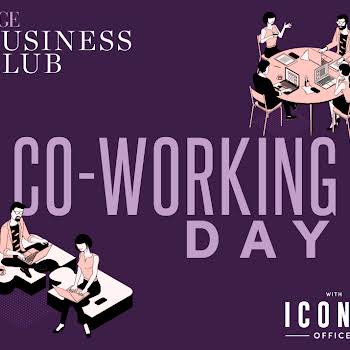
By Colette Sexton
16th Oct 2018
16th Oct 2018
Colette Sexton, news correspondent at The Sunday Business Post, on returning to work after a career break.
People take extended breaks from work for many reasons: illness, caring for a loved one, raising their kids, exploring the world. Whatever the reason for the time off, returning to the workforce can be an intimidating experience.
As companies are constantly on the lookout for good talent these days, many have started to run returner programmes. These help those who wish to return to work following a break to ease back into full-time work. A wide range of companies in Ireland have started to encourage returners to join them through these programmes, including pharma firm Randox, financial company Mastercard, and software company HubSpot.
A consumer survey that HubSpot conducted in 2017 found that a flexible work environment is the number one benefit professionals are looking for in employers today, beating out compensation for the first time ever. Declan Fitzgerald, global recruitment director at HubSpot, said the company now ensures its culture revolves around being flexible. This includes work-from-home and remote work policies, and flexible work schedules.
“We certainly understand that a career break is sometimes simply the right choice to make, and employees shouldn’t be at a disadvantage for making that choice later on.”
HubSpot now runs a returners programme, which includes paid placement of 20 weeks in its EMEA headquarters in Dublin and the possibility of a permanent role at the end of the assignment. So far, it has hired two new employees as part of the programme.
Declan said there are several ways someone can prepare to return to work.
“I believe spending some time to identify your values, both personally and professionally, is valuable in order to find an organisation that best fits. For example, is having the flexibility to pick up your children up from school imperative? Or is continued education important to you? Don’t be afraid to ask these questions during your interviews in order for you to feel confident in returning to work.”
“It can be intimidating and unnerving to start a new job, especially when you have been out of the workforce for an extended period of time. Don’t doubt yourself! Believe in your experiences and your future greatness,” he said. In order to build confidence, Declan recommends spending some time evaluating your previous work experience as well as your transferable skills, like problem solving, organisation and interpersonal communication. You should then find ways to articulate these to a potential future employer, using examples from both your previous role as well as during your time away from work.
For companies thinking of setting up a returners’ programme, Declan said it was important to think about how your company culture would support those who have been on an extended career break. “Benefits such as flexibility and autonomy are very important for those who have commitments outside of work. Ask yourself if your culture has the right infrastructure to support those returning to work.”
He said that many professionals looking to return to work have childcare/other personal arrangements to coordinate to ensure they can participate, so communication and advance planning is essential to make a smooth return to the workforce.
More like this:























